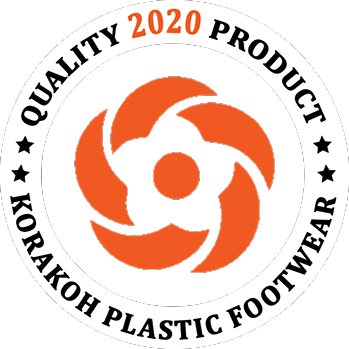With the world becoming more eco friendly, the need for eco friendly products is also skyrocketing. Sustainability is no longer a trend, it is a need: from food packaging to fashion, virtually everything about us is affected. The case is no different of the footwear industry in general and rain boot manufacturing in particular. In this post, we’d look into how Malaysian rain boot manufacturers are embracing eco friendly practices as well as releasing greener alternatives.
Why Eco-Friendly Rain Boots Matter
1. Environmental Impact of Traditional Rain Boot Manufacturing
This is often a non breakable plastic, such as polyvinyl chloride or PVC, and no, conventional rain boots aren’t made from leather. These boots typically require a lot of chemicals and fossil fuels and a lot of carbon emissions. On top of it, the plastic footwear that is produced produces garbage that ends up in landfills, and in many years ruins the environment.
2. The Consumer Shift Towards Sustainable Products
More and more people are interested in how things affect the environment. Eco-friendly alternatives to reduce their footprint of carbon are what they’re looking for. Industry, such as in footwear, is thinking about how it is producing its products. They want to know that a rain boot or a jacket they’ve purchased is not worsening the condition of the planet. Companies are experimenting and looking for how to create new products and make them more sustainable in response to this demand.
Malaysia’s Role in Eco-Friendly Rain Boot Manufacturing
1. Green Manufacturing in Malaysia
With the historical weight Malaysia has put upon manufacturing, they have been shifting their manufacturing towards green manufacturing over the past 10 years or so. Nevertheless, Malaysian rain boot manufacturers have begun decreasing waste, energy and the use of hazardous materials, in the manufacturing process, in an attempt to create an environmentally friendly process. Following the increased focus on the environment, Malaysian manufacturers present themselves in the front row of this green movement; this time in the footwear industry.
2. Support and Initiatives by Government
Policies and incentives by Malaysian government has been encouraging businesses to adopt greener practice. This assistance helped producers invest in environment friendly methods and technology, transforming the nation into a rain boot production center. Helping companies move away from the less environmentally friendly manufacturing practices was the theme of tax rebates dedicated to stimulating the creation of sustainable firms and other programs that encouraged the use of renewable energy.
Sustainable Materials Used by Malaysian Manufacturers
1. Recycled Materials
Of the major ways Malaysian rain boot producers are going green, using recycled material is one of them. Recycled plastics and rubber are already being used by many businesses to go in the place of utilizing virgin plastics — plastics made from petroleum that is bad for the environment — to produce their goods. Repurposing these materials helps manufacturers reduce waste going to landfills and lowering the amount of new resources).
2. Biodegradable and Natural Rubber
In Malaysia, some Kuala Lumpur rain boot producers are using recycled materials and biodegradable ones like, natural rubber. Rubber tree produce natural rubber, which is renewed resource rather than the PVC or synthetic rubber. This shift toward natural and biodegradable materials is a significant step in reducing the environmental impact of rain boot production.

Green Manufacturing Processes in Malaysia
1. Recycled Materials
Recycled materials are one of the ways Malaysian rain boot manufacturers are going green. Many companies are instead using recycled plastics and rubber instead of virgin plastics, which are based in petroleum and are not good for the environment. Using the materials in this way saves the need to source new resources and diverts waste from landfills.
2. Natural and Biodegradable Rubber
Among Malaysian rain boot manufacturers, some are adding biodegradable options like natural rubber; others are using recycled materials. Natural rubber is a renewable resource that unlike synthetic rubber or PVC; it is obtained from harvesting rubber trees. The rain boots were also biodegradable — they will eventually wear out, and then they just break down more easily, without killing the environment.
Benefits of Choosing Eco-Friendly Rain Boots from Malaysia
1. High Quality and Durability
Not only are eco friendly rain boots, they are built to last. A lot of manufacturers understand quality and durability, additionally, the product they produce can handle bad weather and still maintain their eco credentials. A boot doesn’t have to be eco-friendly, providing you sacrifice nothing in the way of performance.
2. Providing Support to Sustainable Practices
When consumers buy eco-friendly rain boots from Malaysian manufacturers, they are in fact bringing income to companies which practice sustainability. That helps form a positive feedback loop so that more and more companies adopt eco friendly methods which lead to more demand for green products. Consequently, it helps to decrease the amount of environmental impact of industries worldwide.
Conclusion
Whereas elsewhere it can take years for a nation’s eco-footprint to reverse its path, in Malaysia’s case it has not only reversed course but is now spearheading eco-friendly rain boot manufacturing. What has Malaysian manufacturers presented to the global footwear industry is whether they’re using recycled materials, biodegradable rubber, or even energy efficient production methods. If you’re in the market for rain boots, consider going the eco-friendly route and buying Malaysia made—sure your feet will feel good, we promise your planet will too.
